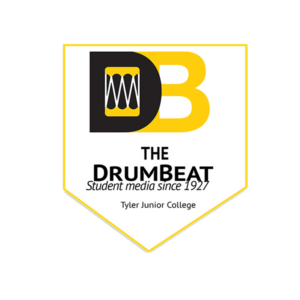By Brianna Murphy
News Editor
Photo by Victoria Deal
Tyler Junior College’s Sign Language Department trains ASL interpreters through extensive education paths.
“There is a huge need for interpreters, and it’s hard to keep up,” said Rhonda McKinzie, Sign Language Department chair at TJC.
McKinzie has been interpreting professionally for over 41 years, and holds a master’s degree in counseling and a state board Master and Court Certification in Interpreting.
The Sign Language Interpreter Training Program strives to provide education to fill the need for interpreters nationwide. The program was founded in 1995 and continues to spread education toward sign language learning opportunities as well as community education.
Degree plans include an Associate of Applied Science in interpreting and ASL skills certificate. Additionally, education is designed to be taken in person, with outreach available for students. McKinzie explained the course uses Sans Sony Soloist, (a language learning software) along with a variety of supplemental outside work.
Coursework includes a variety of essential skillsets, such as AL levels 1-5, Deaf culture, visual gestural communication, fingerspelling and interpreting methods. Although, “it’s important to know it can take up to five years to become fluent,” McKinzie said. “We take our role preparing interpreters very seriously to accommodate the needs of the Deaf community.”
Besides education, the students work with other programs on campus, get involved in community service for local nonprofits providing services for people who are deaf and social activities in the Deaf and interpreting community. Apache Signers perform songs, plays and programs in ASL, such as at Mistletoe and Magic and Tim Tebow’s “Night to Shine,” a prom for people with special needs.
Labs and classes take place in the Pirtle Technology Building, Rooms T106 and T108. Scott Whitney, ASL professor at TJC, said “students can access Canvas course materials, view videos and record videos.” TJC offers many online resources to students, including SignSchool, SignOn Connect, and ASL. “These are only supplemental to enhance their learning. Best practice is small class sizes face to face and immersion. Online work is reinforcing what is learned in class. We use a special software and server to record and grade student’s work and provide peer and self-evaluations,” McKinzie said.
Those pursuing health care, legal and other careers may benefit from learning sign language.
“When one gains more skills in interpreting focusing on an area they are passionate and become qualified and certified in that area, they can either interpret in that area or have conversational ASL skills to bridge the communication gap,” McKinzie said.
To become state certified, students must have an associate degree, and a national certification requires a bachelor’s degree in any field. Regardless, the high demand for interpreters in the field can be applied to many areas of study. Students can earn their ASL Skills Certificate (conversational ASL) and earn a degree in Deaf education or other related fields.
Other reasons for pursuing a sign language interpreting degree root from personal fulfillment.
“Some students desire nothing other than to become an interpreter – filling that role that bridges the communication barrier between the hearing world and the Deaf world,” Whitney said.
The educated awareness of sign language and the Deaf community can help end the stigma associated with being deaf.
“People see that deaf people can’t hear and they tend to overgeneralize that to intellectual abilities as well,” Whitney said. “Deaf individuals have high levels of intelligence, but they are blocked from full participation by societal barriers and communication challenges.”
The definition of deaf can be stigmatized a well, with many false generalizations made toward the Deaf community. “Deaf is just a physical label of someone who cannot hear,” McKinzie said. “We also do not use the word hearing impaired as it’s an insult.”
The Sign Language Department aims to provide education, awareness, and support to the Deaf and surrounding communities to promote understanding.



